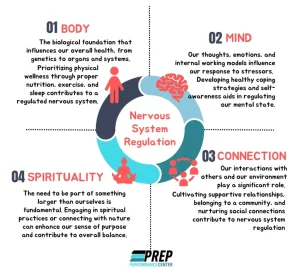
Although it’s hardly breaking news that exercise is good for you, researchers are now beginning to understand how exactly it does its mental magic. This is a powerful discovery for people who suffer from mental health conditions such as depression, anxiety and schizophrenia.
Getting exercise doesn’t have to be an all-out endeavor either. In fact, just 15 minutes of exercise a day can make a big difference.
Stress Reduction
Stress can be helpful when it motivates us to get out of danger or handle a challenge, but prolonged or chronic stress can cause serious health problems. Exercise has been shown to reduce overall levels of tension, elevate and stabilize mood, and improve sleep and self-esteem. Even five minutes of aerobic activity can stimulate anti-anxiety effects in the body.
Despite the fact that it’s difficult to eliminate all sources of stress, most people can learn healthy coping strategies. According to a recent ADAA poll, 14 percent of people who exercise use physical activity as one of their primary stress management tools.
Researchers don’t fully understand why exercise boosts mood and promotes calmness, but they suspect that it may improve resilience and provide a break from stressful activities. A study that tested the time-out hypothesis showed that regular exercisers experienced less of a decline in positive mood after a stressor than sedentary individuals did. It doesn’t take long to reap the benefits of this natural stress reliever, and it can be done in a variety of ways.
Boosts Self-Esteem
Having a strong body and feeling good about yourself can help boost your self-esteem. When you feel confident about what you are capable of, it can make life a lot easier. Exercise has the potential to improve self-esteem in many ways: by reducing stress levels, increasing feelings of accomplishment, improving your outlook on life, helping with decision making, and so much more.
Research has shown that those who exercise regularly tend to have higher self-esteem than those who don’t. It doesn’t seem to have to do with cardiovascular fitness or muscle strength either; these factors are only indirectly related to self-esteem.
The key to boosting your self-esteem through exercise is finding an activity you enjoy and sticking with it. Find a way to motivate yourself, whether it’s by setting a workout routine or challenging your friends to a competition at the gym. Getting into the habit of regular exercise will help you build confidence that will carry over to your personal and professional lives.
Improves Memory
The same endorphins that make you feel energized after exercise also boost your attention span and help you think more clearly. Studies have shown that children who regularly take after-school physical classes improve their ability to focus and concentrate in school. And, adults who exercise regularly experience less memory decline as they age.
A new study from UT Southwestern found that one year of aerobic exercise increases blood flow to two key brain regions involved in memory and cognition. The researchers say their findings support the theory that memory problems like Alzheimer’s may be preventable.
Acute and chronic exercise paradigms are well-suited to studying the effects of exercise on different phases of memory, including encoding and memory consolidation. However, it is important to note that the timing of a memory assessment can influence results (see below). Acute designs should be used when investigating time-locked interactions between exercise and memory, while chronic design may be better suited to investigate long-term changes in the hippocampal region.
Reduces Anxiety
Whether you’re feeling anxious or depressed, exercise is one of the best ways to improve your mood. Having a consistent workout program, even for as little as 10 to 15 minutes a day, encourages the brain to release endorphins that serve as natural painkillers and lift your spirits.
Research shows that any type of exercise can boost your mood, but especially those that involve movement of both arms and legs, like walking, swimming or martial arts. Aerobic exercises like running, cycling and dancing are also good for reducing anxiety, because they increase blood flow to the brain.
The increased blood flow to the brain during exercise may influence certain regions of the brain that control mood and motivation, such as the limbic system, the amygdala and the hippocampus. Adding mindfulness training to your exercise routine—trying to focus on how the movement feels rather than zoning out—may help you get the most benefit from exercise for mental health.







